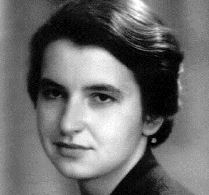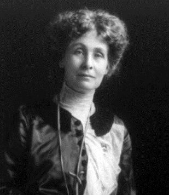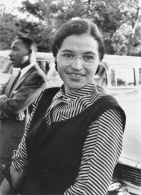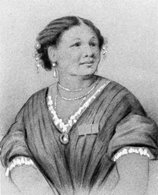Houses





Rosalind Franklin
Born 1920 (London, United Kingdom)
Rosalind Franklin excelled in science, Latin, and sports. She was at St Paul's, one of the few schools in London where girls were taught science. In 1938 Franklin started studying Natural Sciences at Newnham College, Cambridge, where she majored in physical chemistry. When Franklin graduated from Cambridge in 1941 women were prohibited from being awarded degrees. Only in 1947, once Cambridge had changed its regulations, did Franklin gain her bachelor's degree. After completing her undergraduate studies Franklin was awarded a research scholarship to do doctoral research.

Emmeline Pankhurst
Born 1858 (England)
Emmeline Pankhurst founded the Women's Social and Political Union in 1903. This used militant tactics to agitate for women's suffrage. The members of the Union, known as suffragette, fought to enfranchise women in the United Kingdom. Pankhurst was imprisoned many times, but supported the war effort after World War I broke out. Parliament granted British women limited suffrage in 1918. Pankhurst died in 1928, shortly before women were given full voting rights.

Rosa Parks
Born 1913 (Tuskegee, Alabama, USA)
Rosa Parks's childhood brought her early experiences with racial discrimination and activism for racial equality. Her refusal to surrender her seat to a white passenger on a Montgomery, Alabama bus on December 1, 1955,spurred a city-wide boycott. The city of Montgomery had no choice but to lift the law requiring segregation on public buses. Rosa Parks received many accolades during her lifetime, including the NAACP's highest award.

Mary Seacole
Born 1805 (Kingston, Jamaica)
Mary Seacole's father was a Scottish soldier and her mother a free black Jamaican woman who was skilled in traditional medicine. When the Crimean War broke out, she applied to the War Office to assist but was refused. She travelled independently and set up her hotel and assisted battlefield wounded. She became extremely popular among service personnel who raised money for her when she faced destitution after the war. After her death in 1881, she was forgotten for almost a century, but today is celebrated as a woman who successfully combated racial prejudice.